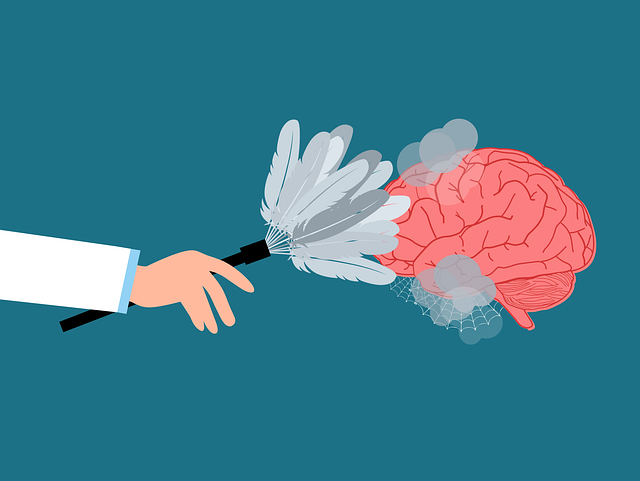Cultural competency in healthcare is vital for addressing diverse patient needs, with techniques like Superior Cognitive Processing Therapy (SCPT) offering a holistic approach to emotional well-being and symptom treatment. SCPT's cognitive reframing helps patients overcome negative cultural thoughts, enhancing trust and health outcomes. Unaddressed cultural barriers, stemming from ethnic and cultural differences, hinder effective care. Cultural competency training through mindfulness and self-awareness exercises improves healthcare provider understanding of diverse perspectives, fostering safer, more inclusive environments. SCPT techniques integrated into training programs enhance cross-cultural communication, rapport building, and care quality. Evaluating training effectiveness involves observing skill application, organizational culture shifts, staff retention, and patient outcomes, especially for culturally diverse groups.
Healthcare provider cultural competency training is essential in today’s diverse society. Understanding cultural competency forms the foundation for delivering quality care, addressing critical issues like patient outcomes and reducing disparities. This article explores key aspects of enhancing cross-cultural communication through frameworks like Superior Cognitive Processing Therapy (SCPT). We delve into designing effective training programs, measuring success, and ensuring sustainable improvements in healthcare delivery across diverse populations.
- Understanding Cultural Competency in Healthcare: The Foundation for Quality Care
- The Impact of Unaddressed Cultural Barriers on Patient Outcomes
- Superior Cognitive Processing Therapy (SCPT): A Framework for Enhancing Cross-Cultural Communication
- Designing Effective Training Programs: Essential Components and Best Practices
- Measuring and Evaluating the Success of Cultural Competency Training Initiatives
Understanding Cultural Competency in Healthcare: The Foundation for Quality Care

Cultural competency in healthcare is a cornerstone for delivering quality care to a diverse patient population. It involves understanding and respecting different cultural beliefs, values, and practices, ensuring that healthcare services are accessible, acceptable, and effective for everyone, regardless of their background. This concept goes beyond simply treating patients; it’s about creating an environment where individuals feel valued and heard, fostering trust and improving health outcomes.
In the context of Superior Cognitive Processing Therapy (SCPT), emotional well-being promotion techniques, and social skills training play a significant role in cultural competency. SCPT, for instance, employs mind over matter principles to help patients challenge negative thoughts and beliefs, which can be deeply rooted in cultural contexts. By integrating these therapeutic approaches, healthcare providers can address not just the physical symptoms but also the emotional and psychological aspects of health, promoting holistic healing and enhancing patient satisfaction.
The Impact of Unaddressed Cultural Barriers on Patient Outcomes

Unaddressed cultural barriers can significantly impact patient outcomes, hindering effective communication and care delivery. In a diverse healthcare landscape, patients from various ethnic, racial, and cultural backgrounds bring unique perspectives and experiences to their interactions with medical professionals. When these differences are not acknowledged and respected, it can lead to miscommunication, mistrust, and even poor treatment adherence. For instance, language barriers may cause delays in diagnosis and treatment, while cultural beliefs and practices might influence how patients perceive and engage with healthcare services.
Cultural competency training equips healthcare providers with the tools to navigate these complexities. By fostering superior cognitive processing through mindfulness meditation and self-awareness exercises, providers can enhance their ability to understand and appreciate diverse perspectives. Crisis intervention guidance, as part of this training, enables medical professionals to address cultural sensitivities during high-stress situations, ensuring patient safety and well-being. Ultimately, recognizing and overcoming these cultural barriers can lead to improved patient outcomes and stronger healthcare partnerships.
Superior Cognitive Processing Therapy (SCPT): A Framework for Enhancing Cross-Cultural Communication

Superior Cognitive Processing Therapy (SCPT) offers a robust framework for healthcare providers to enhance their cross-cultural communication skills. By focusing on cognitive reframing and emotional regulation techniques, SCPT equips professionals with tools to navigate complex cultural interactions. This therapy encourages providers to challenge preconceived notions and biases, fostering a deeper understanding of diverse patient populations and their unique needs.
Through SCPT’s structured approach, healthcare workers learn effective strategies for promoting positive thinking and emotional well-being in patients from different cultural backgrounds. By mastering these techniques, they can create safer, more inclusive spaces, ultimately improving the quality of care delivered to a diverse range of individuals.
Designing Effective Training Programs: Essential Components and Best Practices

Effective training programs for healthcare providers on cultural competency are vital to ensure quality patient care and address potential biases. These initiatives should incorporate interactive workshops, case studies, and role-play scenarios to facilitate active learning. By engaging participants in Superior Cognitive Processing Therapy techniques, such as reflective practice and mindfulness, the training can enhance their ability to navigate complex cultural interactions.
The best practices involve fostering an environment that encourages open dialogue, respects diverse perspectives, and promotes resilience building. Incorporating burnout prevention strategies is essential, as cultural competency work can be emotionally demanding. These programs should also provide practical tools for providers to improve communication, build rapport, and offer culturally sensitive care, ultimately leading to better patient outcomes and stronger healthcare delivery systems.
Measuring and Evaluating the Success of Cultural Competency Training Initiatives

Evaluating the success of cultural competency training initiatives is vital to ensure their effectiveness and long-term impact on healthcare delivery. Measuring this success involves a comprehensive approach that goes beyond simple satisfaction surveys. One key metric is the adoption and application of learned skills and knowledge by healthcare providers in diverse clinical settings. This includes observing changes in communication styles, decision-making processes, and patient interactions post-training. For example, tracking improvements in cultural sensitivity during Superior Cognitive Processing Therapy (SCPT) sessions or noting enhanced resilience building among participants can provide valuable insights.
Additionally, assessing the broader organizational culture shift is essential. This involves analyzing policies, procedures, and staff retention rates to see if training initiatives have fostered a more inclusive environment. Measuring patient outcomes, such as improved health results or increased patient satisfaction, specifically for culturally diverse populations, is another powerful indicator of successful training. Incorporating self-care routine development for better mental health and encouraging self-care practices among healthcare providers can also contribute to the overall success evaluation, ensuring professionals maintain resilience and optimal well-being while delivering culturally competent care.
Healthcare provider cultural competency training, encompassing elements like Superior Cognitive Processing Therapy, is not just a best practice—it’s essential for delivering quality care. By addressing cultural barriers and implementing effective training programs, healthcare organizations can significantly improve patient outcomes. Measuring the success of these initiatives is crucial to ensure ongoing improvement and adapt to the evolving needs of diverse patient populations.














